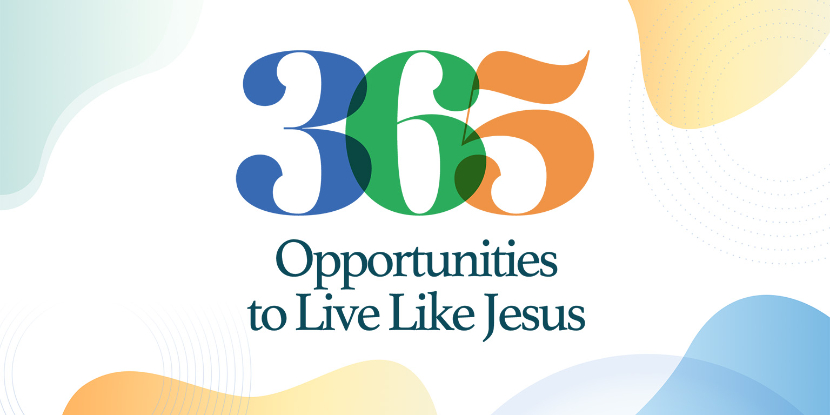From the November 2023 Issue

Online Exclusive: From This Point Forward
Not of the World
Toni Henry of Charlotte, North Carolina, grew burdened about the epidemic of unplanned pregnancies and abortions in her city. Many of the expectant women were from underprivileged backgrounds with no spiritual knowledge or family support. Toni couldn’t solve the whole problem, but she determined to do what she could. She helped establish Lois Lodge, named for the grandmother of Timothy in the Bible, which today provides a loving home to six women at a time—some as young as thirteen—and helps them see how God loves them and their unborn children.
In August 2010, Stan Buckley took an exploratory trip to see the devastation of the Haiti earthquake. “I had no idea how I could help,” Stan said, overwhelmed, “but I knew I needed to do something.” From that trip came But God Ministries, an organization mobilizing Christians to assist Haitians in the name of the Savior. “I travel to Haiti once a month,” Stan said, “and the planes are always packed with believers from a variety of ministries. After the earthquake, the media moved on to the next story, but Christians stayed and keep coming. We can’t do everything, but we can do something.”
None of us can do everything, but all of us can stand up and do something.
Toni, Stan, and these 3.9 million students are part of an innumerable army of believers who have engaged the culture on multiple fronts with the Gospel of Christ.
Not of the World
None of us can do everything, but all of us can stand up and do something, as long as we remember we’re not of the world. We’re in the world to make a difference. That requires a keen sense of identity. When we identify too much with the world, we dilute our influence. The more we feel at home in our culture, the less we’ll represent the Kingdom.
The Bible doesn’t hesitate to use the term “separation.” When I was growing up, we had weeklong revival meetings with traveling evangelists, and a recurring theme was separation from the world. These fiery preachers warned us against compromising our convictions and backsliding into worldliness. “Come out from among them and be separate!” (2 Corinthians 6:17) they thundered.
We seldom hear such preaching now, but the biblical message hasn’t changed. In the Old Testament, the children of Israel were called to be separate—distinctive and different—from other nations. “I am the Lord your God, who has separated you from the peoples.… And you shall be holy to Me, for I the Lord am holy, and have separated you from the peoples, that you should be Mine,” reads Leviticus 20:24-26.
Jesus in us, for we’re messengers of His truth, ambassadors of His love, and embodiments of His promises.
Jesus prayed for His followers in John 17:16, saying, “They are not of the world, just as I am not of the world.” Shortly afterward He told His disciples, “As the Father has sent Me, I also send you” (John 20:21).
When we’re of the world, we’re part of the problem. When we’re of the world, we cannot be an effective witness. Remember: You’re not a citizen of earth on your way to heaven. We’re citizens of heaven traveling through the earth, and we’re here on assignment to fight the enemy, help the wounded, and liberate the enslaved.
Sometimes we cling too tightly to our world and become too attached to our culture.
But in the World
Yet we are in the world. J. B. Phillips translated Romans 12:1-2 like this: “I beg you, my brothers, as an act of intelligent worship, to give him your bodies, as a living sacrifice, consecrated to him and acceptable by him. Don’t let the world around you squeeze you into its own mould, but let God re-mould your minds from within, so that you may prove in practice that the plan of God for you is good.”
To be in the world but not of the world means we refuse to let the world squeeze us into its mold—no matter how hard it squeezes us. We must live for Christ and His glory, regulating all our thoughts and deeds by His Handbook from heaven, the Bible, which we actively share with others.
We should think of ourselves in ambassadorial terms. Joe Rodgers was America’s Ambassador to France in the Reagan Administration. He was once asked, “How is being an American ambassador like being an ambassador for Christ?”
Rodgers replied, “The main role of an ambassador is to represent his or her country in a good light. As America’s ambassador to France, my job was to present a positive image of America to the people of France. I wanted them to see us as a powerful friend. As a Christian, that’s what I do for the Lord. I represent Him to the world and seek to help others understand His power and love.”1
Rodgers was in France, but he was not of France. He wasn’t a French citizen, and Paris wasn’t his permanent home. He was on temporary assignment there, living in an embassy, obeying the directions of his Commander in Chief, and representing his cause.
When we think of ourselves in those terms, we seize on our purpose. People need to see Jesus in us, for we’re messengers of His truth, ambassadors of His love, and embodiments of His promises. Our very presence will have an influence in our fallen and failing culture.
You may not feel you can do much, but you can do something. Perhaps you can’t give much, but you can contribute more than you think. Perhaps your strength is small, but your strength will equal your days (Deuteronomy 33:25). Your influence is larger than you know, and when God gives you a burden for the world, He will bless it.
A fellow once went up to a businessman named Alan Graham of Northern Ireland and asked him what he was doing with his life. “I’m building a business,” replied Alan, “and raising a family, making a living, and building a home.”
The man said, “Why don’t you give it all up and come to County Donegal in the northwest of Ireland and tell boys and girls about Jesus Christ, because no one is telling them?”
Those words struck Alan like stones from a slingshot. After considerable thought and prayer, Alan and his wife, Dorothy, left their comfortable life in Belfast and joined the ranks of Child Evangelism Fellowship, where now they have had a life-changing ministry in both Ireland and Zimbabwe.2
Sometimes we cling too tightly to our world and become too attached to our culture. We may not move to County Donegal or Zimbabwe, but we can still change things around us.
“If you cannot sing like angels, if you cannot preach like Paul, you can tell the love of Jesus, and say He died for all.”3
Whether you’re a high school senior or a senior adult—whatever your age or location—think of yourself as an ambassador for Christ in a fallen culture. Make up your mind to be in the world but not of the world, and to change the world as God leads you. We can’t do everything, but we can do our part. We can’t change everything, but we don’t have to go with the flow.
We’re ambassadors for Christ! Let’s stand up, seize our calling, and set ourselves apart for His Kingdom and cause.
Sources:
1In an interview in 2000 with Robert J. Morgan.
2Rob Morgan, The Strength You Need (Nashville, TN: Thomas Nelson, 2016),101.
3“There Is a Balm in Gilead.”
More Articles
This Month's Magazine Resource

What God Promises You
Using Scripture and powerful, real-life stories, Dr. Jeremiah helps you not just understand these promises but also claim them as your own.
Subscribe Now
Each month, read articles and devotionals from Dr. David Jeremiah that will encourage, challenge, and strengthen your walk with the Lord.














 Turning Point for God is a tax-exempt, not-for-profit, religious corporation as defined under Section 501(c)(3) of the Internal Revenue Code. Your donation gift(s) are very much appreciated and may qualify as a charitable deduction for federal income tax purposes.
Turning Point for God is a tax-exempt, not-for-profit, religious corporation as defined under Section 501(c)(3) of the Internal Revenue Code. Your donation gift(s) are very much appreciated and may qualify as a charitable deduction for federal income tax purposes.




